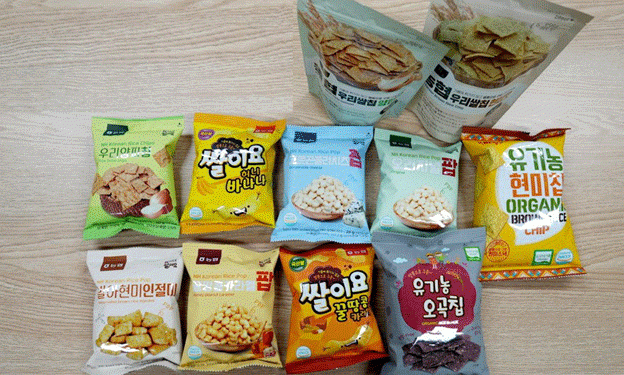On November 22, the first shipment of Cheongwon Life Rice snacks began its journey from Busan Port to Thailand, signaling a breakthrough for Korea’s rice export industry. The export includes 16,000 bags of the “Safe Rice Yo” snack series, totaling 4 tons. By December, the snacks will hit shelves in Thai cities such as Bangkok and Chiang Mai, featured in stores like Seven-Eleven and Jidubanji Market, a major local retailer.
This effort stems from Cheongju’s focus on revitalizing rice consumption amid declining demand. In partnership with the Cheongwon Life Rice Cooperative, the city has developed ten rice-based snack products since 2019. These snacks have now become a key pillar of the city’s rice export strategy, achieving an impressive domestic sales milestone of 2.5 billion KRW in 2024.
From Fields to Markets: The Journey of Premium Rice
Cheongwon Life Rice stands apart due to its environmentally friendly production methods. Utilizing the eco-friendly snail farming technique and maintaining GAP (Good Agricultural Practices) certification, the rice meets stringent quality standards. These practices have earned the brand 13 consecutive LOHAS certifications, reinforcing its reputation as a sustainable, high-quality product.
To further bolster the rice sector, Cheongju has also launched a rice flour production facility. Built on an 822㎡ site, the facility will process rice into flour and chips, offering new avenues for diversification. The city purchased 465 tons of rice for public storage in 2024, with a significant portion dedicated to this initiative.
Challenges and Opportunities in Global Markets
Thai consumers present an ideal market for Cheongwon Life Rice snacks. The country’s growing interest in healthier snack alternatives aligns well with the eco-conscious and high-quality branding of the products. However, entering international markets involves challenges, including adapting to local preferences and navigating competitive pricing. Leveraging innovative branding and Thailand’s existing affinity for Korean products, the brand is poised to succeed.
Cheongju’s rice snack exports to Thailand symbolize the evolving role of agriculture in tackling economic and environmental challenges. By turning surplus rice into high-value products, the city sets a precedent for innovation in the agricultural sector. As these snacks debut in Thailand, they serve as a reminder of the global potential of local resources when innovation and sustainability are prioritized.
Error





